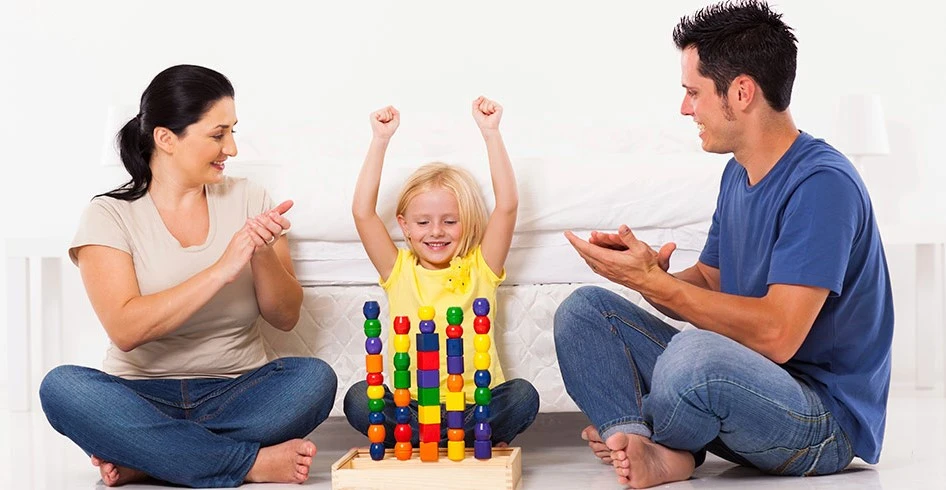Self-respect is like treating yourself with an understanding of your values. For a happy and fulfilling life, self-respect is an essential factor. In personal development, if you have self respect, it reminds us to stand strong and be true to ourselves. The practical strategies for teaching self-respect in children include positive reinforcement, setting achievable goals, etc. These techniques cultivate self-respect in kids and create a supportive environment where children learn to appreciate themselves and understand their value.
Define Self-Respect in Action
Self-respect is a personal compass that guides individuals through their daily lives for valuing their character and abilities. The practical ways to cultivate self-respect in children, involves setting healthy boundaries, expressing opinions confidently, and making choices that align with personal values. Self respect translates into behaviour and decision making through handling challenges, accepting failures with grace, and celebrating successes without diminishing achievements. Through the steps to cultivate self respect in kids, Self-respect in kids is the foundation for forming positive relationships, as individuals who respect themselves are more likely to foster respectful connections with others.
Model Self-Respect
Adults have an influential role modelling self respect on children, setting healthy boundaries, expressing confidence, and handling challenges with grace. This consistent behaviour shapes a child’s perception of self-worth and influences their worldview. Also, self respect can help prevent bullying. Adults’ everyday role models play a crucial role in teaching children the art of self-respect. Through practical strategies for teaching self-respect in children cultivates confidence and positive self-image in children, fostering their growth into self-respecting individuals.
Encouraging Positive Self-Talk

Internal dialogue significantly influences self-perception and self-worth. Positive, kind dialogue strengthens self-respect, while negative dialogue can erode confidence. Understanding the practical ways to cultivate self respect in kids, allows us to choose supportive words, developing a positive relationship that leads to a confident and fulfilling life. To promote positive self -talk in children and self respect in children, create fun and engaging activities. These steps to cultivate self respect in kids encourage them to write positive things about themselves, reminding them of their awesomeness and building a habit of positive self-talk.
Setting and Respecting Boundaries
In developing self-respect, there is the importance of boundaries in fostering self respect. They define what feels okay and what doesn’t. Teaching children strategies like the “safe zone” game and adults modelling boundary-setting can help nurture self-respect. These techniques to cultivate self respect in kids empowers them to communicate and protect their feelings, fostering a strong fortress of respect.
Promoting Goal Setting and Achievement
Promoting goal setting and achievement in children is a powerful practical strategies for teaching self-respect in children. It boosts self-worth and encourages children to set age-appropriate goals. Celebrating these achievements, such as puzzle completion or bed-making, creates a positive self image and shapes children into resilient and self respecting individuals, making it a key part of human experience.
Celebrating Individuality
Celebrating each child’s uniqueness is essential for teaching self-respect and confidence. It encourages celebrating differences and recognizing their uniqueness. Adults can encourage activities like talent showcases, creating a garden where each flower is appreciated for its beauty. These practical ways to cultivate self-respect in kids helps to nurture them into a unique man.
Handling Mistakes and Failures
Teaching children to handle mistakes and failures is one of the crucial steps to cultivate self-respect in children. Adults can teach them that mistakes are normal and opportunities for improvement. Practical strategies for teaching self-respect in children like the “learning journal” can transform mistakes into positive journeys of self-discovery, instilling resilience and self-respect in children as they navigate life’s challenges.
Building a Supportive Environment

As the impact of the surrounding environment on a child’s self respect, it develops their confidence and understanding. Adults can use the techniques to cultivate self-respect in children involving praise achievements, encourage open communication, and model respectful behaviour. A supportive environment provides essential elements for a child’s growth, like sunshine and rain for plants.
Incorporating Self-Reflection
Self-reflection is a powerful tool for children to understand themselves and boost self-respect in kids. As the practical ways to cultivate self respect in kids, adults can encourage children to explore their thoughts and feelings through simple exercises like drawing or writing about their favourite part of the day or using weather metaphors. These self reflection exercises for children help to navigate emotions, build self-awareness, and develop a strong sense of self respect.
Engaging in Positive Affirmations
Positive affirmations can strengthen children’s self-respect by highlighting their strengths and uniqueness. Adults can encourage repeating affirmations, acting as superhero mantras. As the practical strategy for teaching self respect in children, incorporating affirmations into daily routines helps children develop a resilient mindset, preparing them for growing up challenges.
Partnering with Educators and Caregivers
Teamwork among parents, teachers, and caregivers is crucial for children’s well-being, fostering self-respect. The unique parenting path help to reinforce messages and teachers use interactive games and storybooks, and parents discuss these concepts with their children. These steps to cultivate self respect in kids ensures consistent guidance and encouragement, making self-respect cultivation a collective effort.
Real-life Success Stories
Emma and Alex, two friends, learned self-respect through practical strategies. Their parents and teacher teamed up like superheroes, introducing fun activities and encouraging boundaries. This helped Emma notice her strengths and speak up more confidently. Alex, who used to doubt himself, appreciated his achievements. These techniques to cultivate self respect in kids transformed the shy kids reach their full potential and make them confident.
This blog involves nurturing self-respect in children through practical strategies for teaching self-respect in children. These activities turn self-reflection into a fun adventure, teaching kids to set boundaries, express feelings, and make positive choices. The magic lies in the ongoing practice of these strategies, which are like practical ways to cultivate self-respect in kids regularly. Teaching kids the art of self respect and empathy reinforce the belief that each child is a unique, valuable superhero in their own right, making them a valuable toolkit for a confident future.

